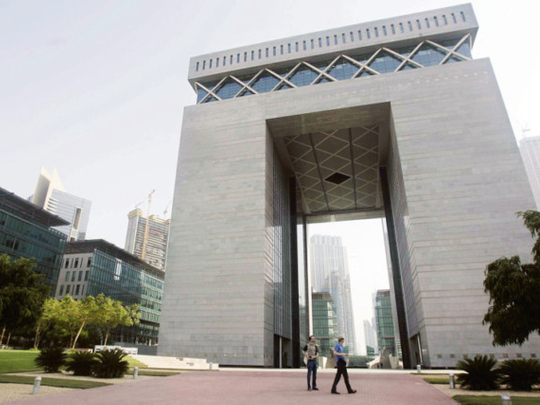
Now that an international coalition is being formed to deal with the immediate threat that the Islamic State in Iraq and the Levant (Isil) poses to the region and the world, it may be sound to explore the long-term solutions to deal not just with Isil in particular but with extremism in general.
Isil claims to represent the essence of an Islamic state. It does not. Yet, it continues to create havoc in Iraq and elsewhere in the Middle East. There is no question that this radical movement is an imminent danger and can lead to a long-term erosion of peace and productivity in the region and throughout the world. But we must remember that the conflict in Iraq is emblematic of a troubling trend that sees modernity clash with tradition. We face a potential global metastasising-and-thus-debilitating intra-religious conflict. Accordingly, the ultimate solution will not be achieved solely by further US military involvement in a millennium of ethnic divergence. In fact, such intercession is likely to exacerbate the situation more than it already has. Astute local and international leaders, however, could well mitigate extended violence by looking to emulate an existing example of inter-cultural success: the UAE, and particularly Dubai.
The UAE and Dubai are not democratic entities in the western sense. Yet we have managed to build a governmental and economic system that continues to work in an efficient way, compared to anything in the region. Economic growth, human development, state-of-the-art infrastructure, and educational and health care systems here are unmatched in a region where only conflict is often dominant. In large part, this success is built on a foundation of providing broad-based economic opportunity. We have seen that such opportunity dilutes conflict, more easily enables tolerance, and creates an array of common goals that foster multiple levels of human accomplishment.
Properly envisioned economic opportunity requires tolerance, inclusion and patience. These qualities are not easily assimilated, especially where religion is concerned. Yet, while most Muslims in the UAE are Sunni, those following the Shiite branch of Islam are free to worship in their own mosques and have equal opportunities in society. The UAE has Christian as well as other religious populations, all whom live in harmony and peace. Dubai hosts the largest population of Kurds in the Gulf Cooperation Council. In fact, 200 nationalities live together in peace in the UAE, creating a dynamic economic synergy that benefits all of them in various ways.
Dubai’s population alone has increased by 100 per cent in just a few years — from 1.5 million to 3 million, the majority of whom are foreigners. More recently, families from the Levant, Iraq, Egypt, Yemen and Libya — torn by the so-called Arab Spring — found the UAE to be the best place in which they can find a living environment that is not different to their culture. What drives all of them is a common goal of business opportunities and a work culture that brings out the best in entrepreneurs. What Iraq and the region need is to engage their populations in an economic goal that focuses on building a better future for them and their children. People engaged in economic growth find little time, if any, for the joy of ideologies. People may argue, and even fight about ideologies, religion and ethnic differences, history, social and cultural issues but they rarely argue about the need for better jobs, income, education, housing and healthcare. If a regime can concentrate it’s efforts in the provision of these needs and encourage its population to thrive for economic growth, then who would listen to the voices of extremism? It is the economy that unites people.
Granted, the UAE and Dubai are blessed with the resources to generate economic opportunity. But so is Iraq. The UAE and Dubai have leaders who see and appreciate the opportunities created by a genuine meritocracy. So could Iraq. The UAE and Dubai encourage both individualism and community achievement. So could Iraq. The UAE and Dubai look to young people, not just as successors, but as innovators and sculptors of the future. So could Iraq.
The UAE and Dubai are not perfect. We have much work to do, more in some areas than others. Overall, however, we are progressing, not regressing. We are doing that with vigour, together, and with as much openness as our society allows. And we are doing that as a state that embraces Islam as a religion and as a cultural identity.
I’m suggesting, I believe reasonably, that the world and the region might look at the UAE and Dubai as successful examples of governance rather than those proposed by Islamist extremists and, frankly, by nations that have either little understanding of Islam or have a misdirected perception created by miscreants. Such a comparison may be more realistic and beneficial for millions rather than trying to force the proverbial square peg into a round hole. That has not worked in Iraq and probably never will. Iraq needs a better solution. Long-term global interests and international security will suffer if one is not found — soon.
Dr Habib Al Mulla is a Dubai-based attorney, specialising in arbitration. He created the concept of financial free zones in the UAE and was the architect of the legal framework establishing the Dubai International Financial Centre.








